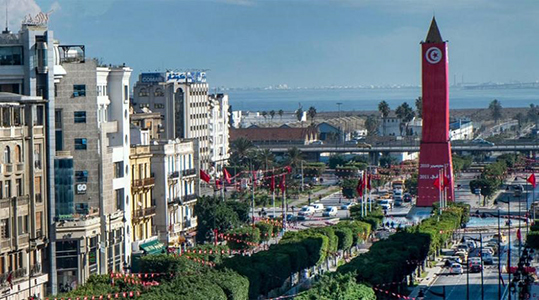The Central Bank of Tunisia revealed that foreign exchange reserves have grown to 21.5 billion Tunisian dinars (about 7.6 billion dollars), which allows imports to be covered for a period of 142 days, a record period compared to what the local reserve witnessed during the past years, as it previously decreased to levels that did not cover more than 73 days.
Tunisia recorded an increase in the level of its ability to cover its imports by about 47 days, compared to the same period in 2019, when the local foreign exchange reserves reached about 17 billion dinars. Despite the significant increase recorded by the Tunisian foreign exchange reserves, the total volume of refinancing the Tunisian economy decreased by at least 4.241 billion dinars and stabilized in the range of 10.794 billion dinars compared to 15.036 billion dinars during the same period in 2019.
The budget deficit deepened significantly during the first half of the current year, reaching 3.8 billion dinars, compared to 2.4 billion dinars during the same period in 2019, according to the Central Bank of Tunisia. The Tunisian government expects a negative performance of the Tunisian economy, at a rate of 7 percent by the end of the current year, after the Tunisian Ministry of Finance had expected an economic growth rate of 1.7 percent when preparing the 2020 budget.
Source (Al-Sharq Al-Awsat Newspaper, Edited)

